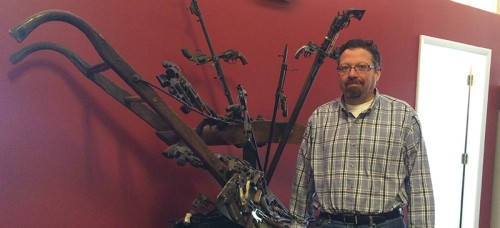
Mike Parker served four years of active duty in the United States Army. After transitioning to the Army Reserves in 2013, he moved to Chicago where he was robbed twice at knifepoint in the city. In the first incident it was a teenage boy near the Montrose Blue Line station who pulled a knife on him, and the other time around it was a homeless man in the Humboldt Park area. Both made him consider his personal safety.
Parker applied for a concealed carry license in Chicago as soon as the applications were open in 2014.
“The main reason I got one is because I was worried what would happen to me if I didn’t have one,” he said.
Almost 100,000 other Chicagoans feel the same as Parker and have taken action in the past two years. Illinois was the final state in the United States to allow handguns to be carried in public when the Firearm Concealed Carry Act was passed in 2013. And, according to data released by Illinois State Police at the end of 2014, more than 91,000 concealed carry permits have been issued. Cook County contributes the most to the overall figure, with over 23,000 concealed carry licenses issued.
However, analysis of concealed carry permit data and related records reveal that the regulatory process that oversees permits and permit holders has serious flaws that may threaten citizens’ safety in different ways. According to the Illinois Department of State Police’s 2012 management audit report, over 20,000 Firearm Owners Identification holders faced revocations, out of which only 30 percent of revoked FOID cards from 2008-2010 were not returned to the state police .
Through a Freedom of Information Act request to the ISP, over 3,000 revoked FOID cards were returned to the State Police in 2014. But this number does not reflect FOID cards that were surrendered to local law enforcement during that year. In the early months of 2015, the number of revoked Concealed carry licenses, has dropped over the years and the recent report shows that only 27 CCLs were revoked and the reasons were not declared.
These discrepancies in the data concern citizens like Mark Walsh, who has been working for eight years as a campaign director at Illinois Council Against Handgun Violence (ICHV). The association has been practicing to prevent gun violence for more than 40 years and considers itself to be the no. 1 opponent to having concealed carry in the state.
Their main area of concern with the concealed carry act is the “enforcement mechanism” on revoked cards. According to the law stated in the management audit report from 2012, citizens who retain a revoked FOID card are able to purchase ammunition from a licensed firearm dealer and firearms from private sellers.
“It is a requirement now that if firearms are purchased from a private seller, they have to verify that,” Walsh said. “But it is just a phone call or online verification. It is not going through a federal firearms license dealer.” And this update in the FOID law proves that the control is not being effectively exercised.
Walsh recalled a case a few years back in the western suburb of Schaumburg where a woman was killed by her boyfriend who she had filed a restraining order against. In a situation like such, his FOID card should have been revoked, but he was still legally able to buy a gun before that and kill her. For Walsh, the state should have been proactive with cases like these and seized the firearms from the individual once the restraining order had been filed.
ICHV is proposing adjustments to the concealed carry law this year with the support of State Sen. Dan Kotowski, is a strong critic of CCL and the former executive director at ICHV. They are finding streams to fix the flaws in the state system and one such proposal is a ‘gun violence protective order,’ where if an individual feels that someone they know is a risk to themselves, they can petition to remove guns from their homes and prevent them from acquiring firearms.
State residents are required to complete 16 hours of firearm training by an ISP approved instructor to fulfill one of the requirements to obtain a concealed carry license.
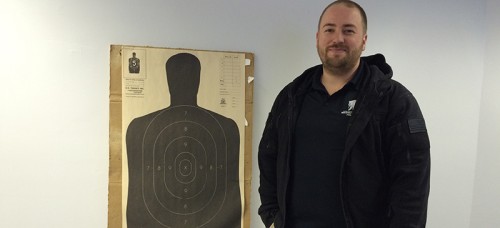
Christopher Gerke is the owner and firearms instructor at Streeterville Tactical, which is tucked away in Chicago’s Loop area. He believes that 16 hours of training to use a firearm is acceptable. But in his experience he has never run a class that is less than 20 hours.
“To be able to use a firearm defensively is a mindset that goes beyond the training,” Gerke said. Firearm training classes for CCL kickstarted last year at Streeterville Tactical and in Gerke’s experience, high-risk individuals such as people like jewelers or brokers make up the majority of residents enrolled in his classes.
With his military experience, Parker was required to credit only eight hours of training and believes that the training course was “too easy” and said, “I feel they should have made it more difficult for people to get it because not everyone should have a gun.”
Gerke obtained his firearms instructor license last year and the biggest misconception he receives is the purpose of the training.
“Many think we teach how to shoot other people,” he said. “The important thing we teach is safety with a firearm, how to avoid danger and then if all else fails, I want you to be comfortable using a firearm.”
Gerke noticed many residents who took the first few hours of classes realized they were not willing to carry a handgun. Some found it not to be a practical option to carry concealed, as they use public transit to get to work in a university or a building with a government office, and it is prohibited to carry guns in such areas.
As the nation recently debated about allowing residents to carry concealed with no permit required, Indiana is one of the few states with lenient and undefined laws in the nation. With such potential changes taking place, Illinois is regarded as one of the top 10 states to have the strongest gun laws according to a report by the law center to prevent gun violence.
Daniela Maag, a Hyde Park resident, felt that regardless of her area not being the safest in the city, she would never apply for a CCL.
“Having a gun is a big responsibility and I don’t want to have that responsibility. Owning a gun would make me more vulnerable,” she said.
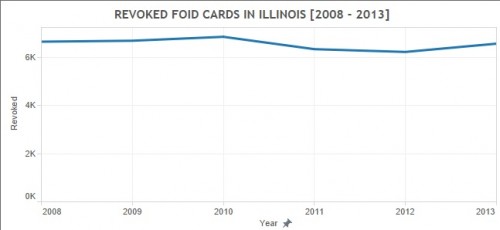
She fears the thought that if everyone could carry a handgun, it would make the neighborhood less safe.
On top of ICHV’s agenda this year is to recognize the lack of inspection in the state licensing of gun dealers.
“There are over 2,000 FFLs (Federal Firearms License)in Illinois, to put things in perspective there are more licensed firearm dealers than there are McDonald’s,” Walsh said.
Data analysis supported Walsh’s claim as there are only a little over 700 McDonald’s restaurants and more than 2,000 FFL’s in Illinois, according to the gun dealers database.
“If the potential of misusing a weapon is high and so is the lethality of it, those dealerships should be licensed too,” Walsh said.
Yet public conversation on the issue has largely stalled since the law’s 2013 passage. Four licensed firearm dealerships in Illinois were contracted for comment for this story, but all of the requests were denied.
Currently there are over 100,000 active concealed carry licenses in Illinois, according to figures released by ISP. Illinois has been traditionally reluctant to allow handguns in public, however, now with the concealed carry law being implemented and applications for the CCL increasing, some flaws in the process have gone unnoticed and are treated as loopholes for many.


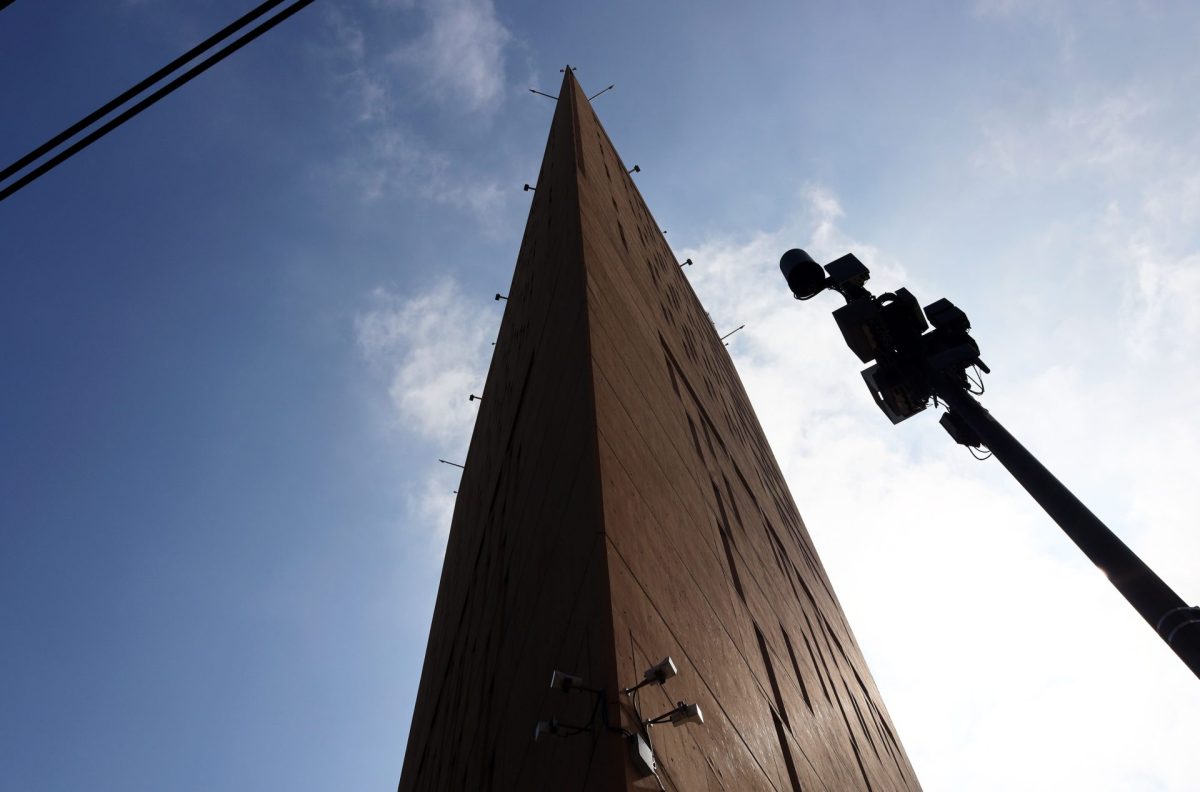
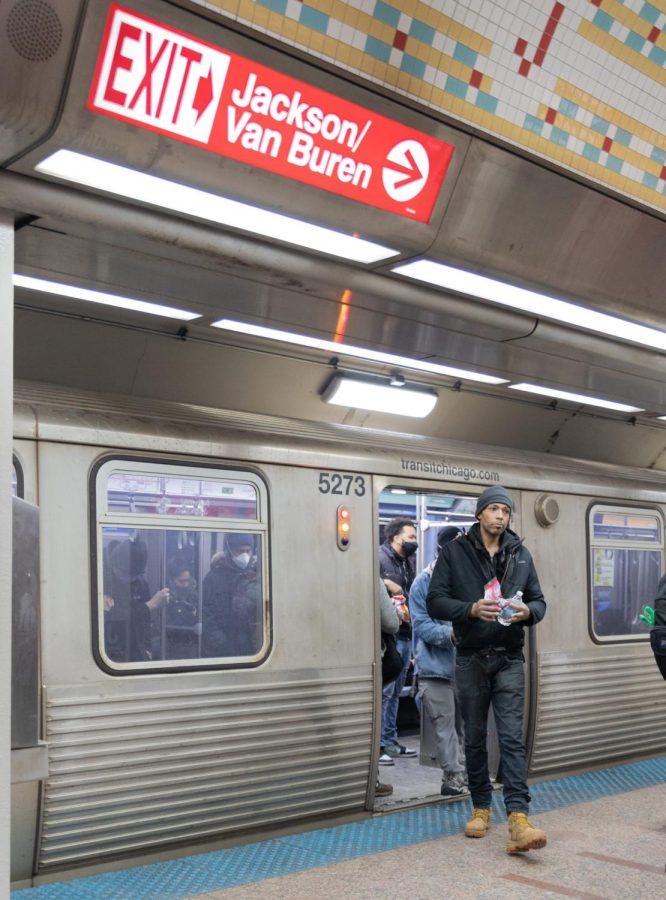
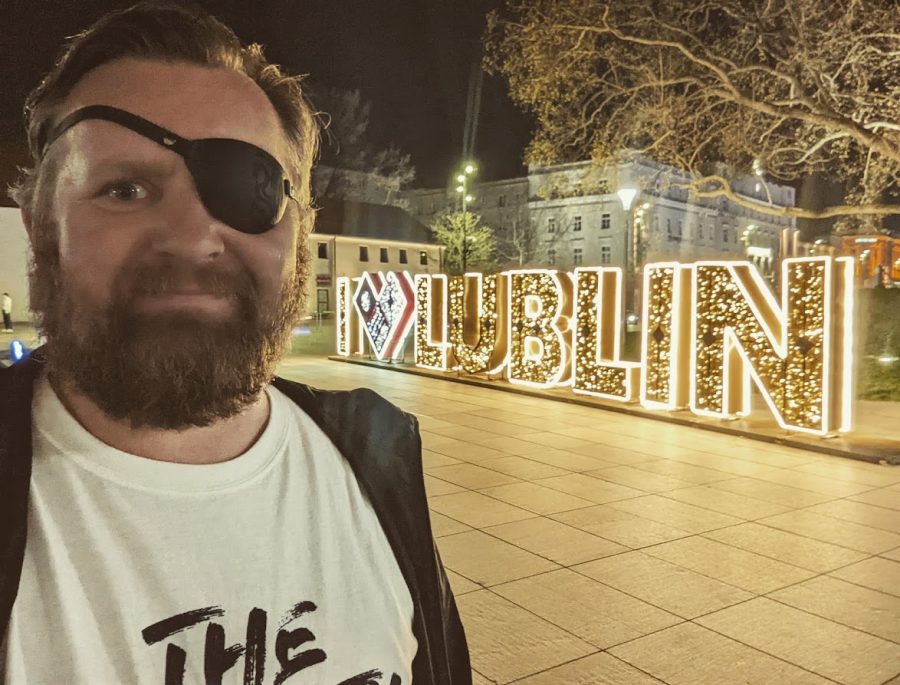
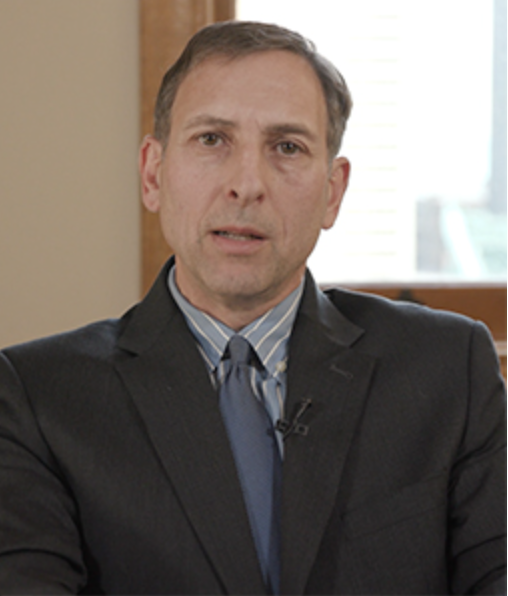
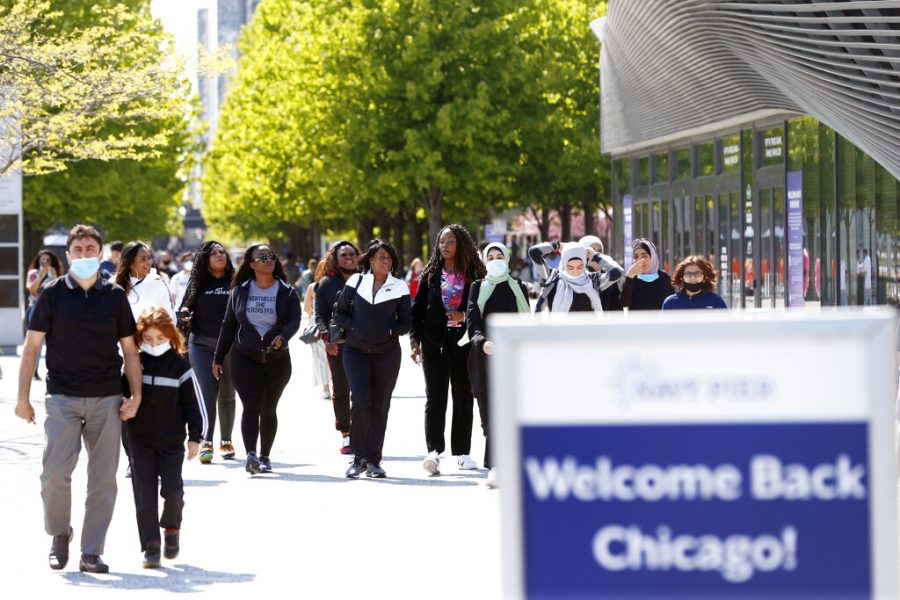
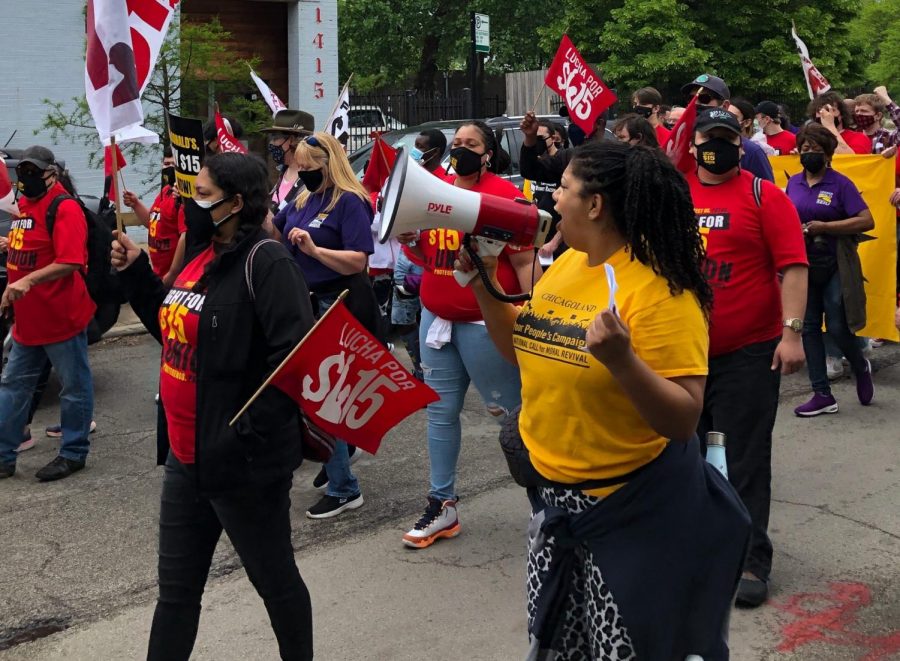


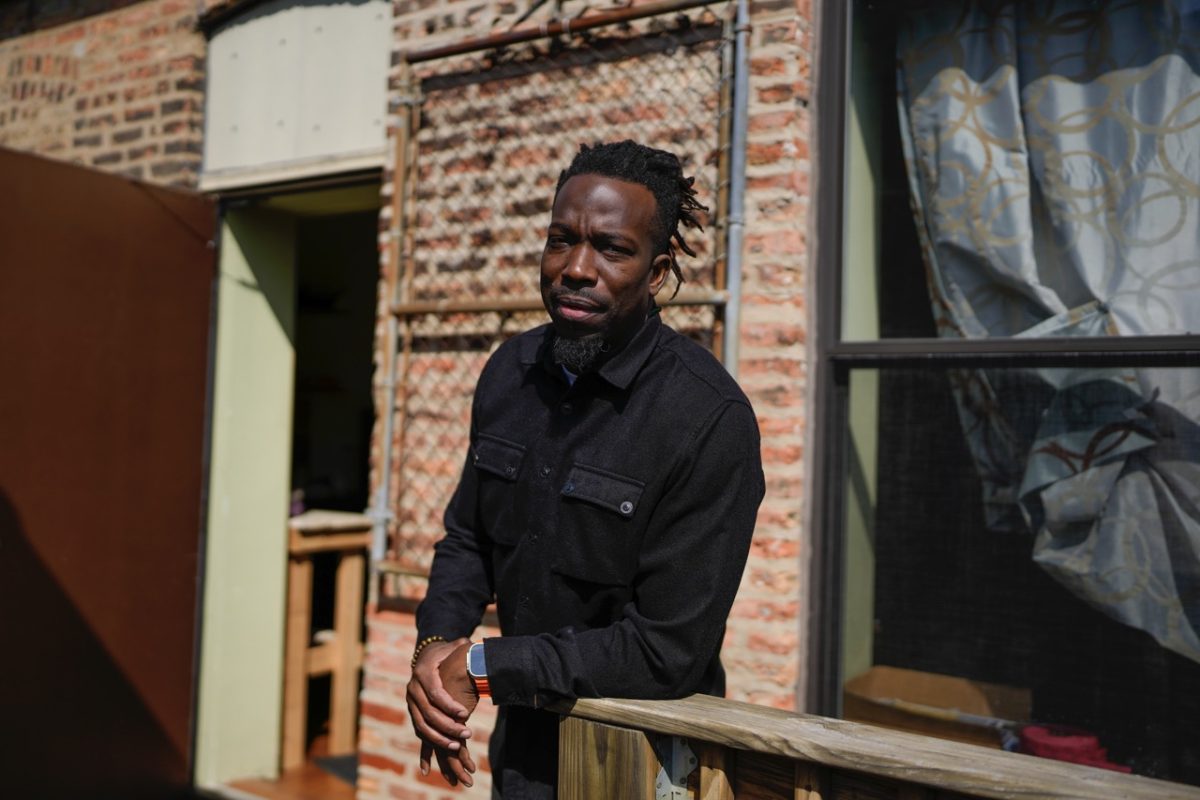



Jeff • Jun 18, 2015 at 2:00 pm
I am a staunch support of concealed carry and gun rights and don’t see how responsibly armed people everywhere is a bad thing. I would feel safer.
John • Jun 9, 2015 at 7:12 am
This article is just a mess. I am not sure what its trying to say. One thing is for sure, criminals will always get guns. And if they dont get guns, they will use knives or machetes.
Meanwhile, CCL in Illinois has proven itself by the crime statistics. Case closed.
mike • Jun 1, 2015 at 8:50 pm
This article was written in a sixth grade style, by people who obviously don’t know a lot about guns or the gun laws in this state. If you’re legally barred from purchasing or owning a gun, having an invalid FOID card in your possession doesn’t make it legal. People who aren’t criminals aren’t going to commit crimes with guns, regardless of the state licensing scheme, and criminals aren’t going to bother with licensing anyway. Police have guns because they are the most effective defense against violent attackers. Every eligible citizen should also have one, and carry it at all times. People with a phobia of guns should avoid all public spaces, as police and CCW holders are EVERYWHERE.
Keith E. Turner • Jun 1, 2015 at 9:34 am
This article is all over the place.
It juxtaposes gun ownership with carrying on concealed on you person.
It speaks of stopping gun violence by requiring training of individuals to legally carry a gun and the further licensing of businesses under the state in addition to their Federal license.
How on earth will having a business that has an FFL (and in the case of a retail store, local business licenses), to also have a state license, stop people from committing crimes?
Maybe the focus should be on the behaviours of individuals that break the law and harms others rather than the tools the millions of people use everyday for legal purpose including but not limited to self defense.
And finally, how about hosting a true debate between Mark Walsh who is NOT an expert on firearms and someone who is?
But that won’t happen because the anti civil rights folks can’t debate based on fact and logic they only engage in one sided presentations of their opinions which are never based on facts.